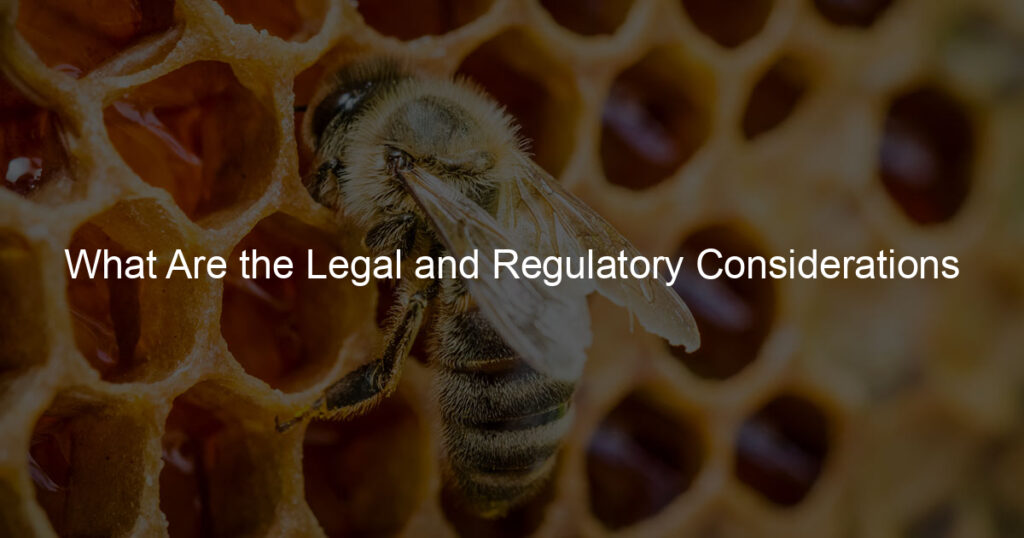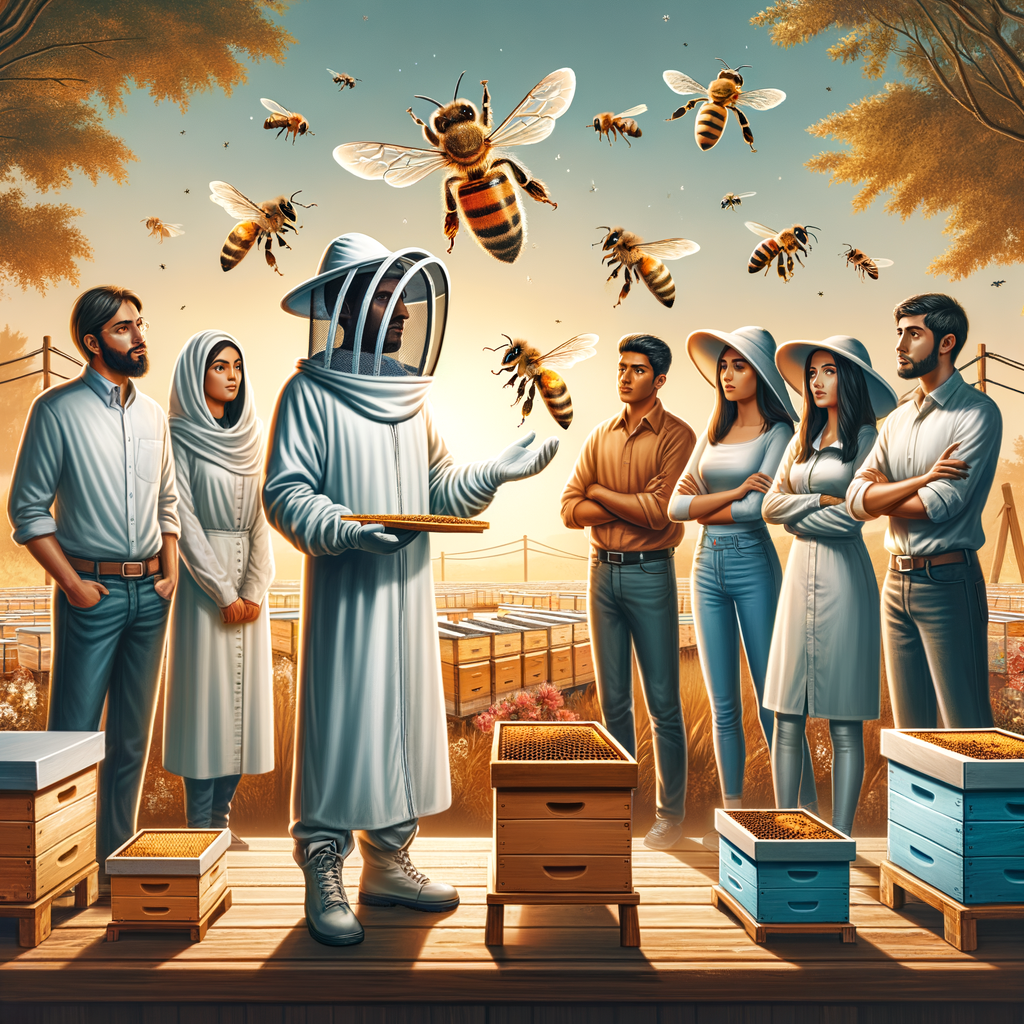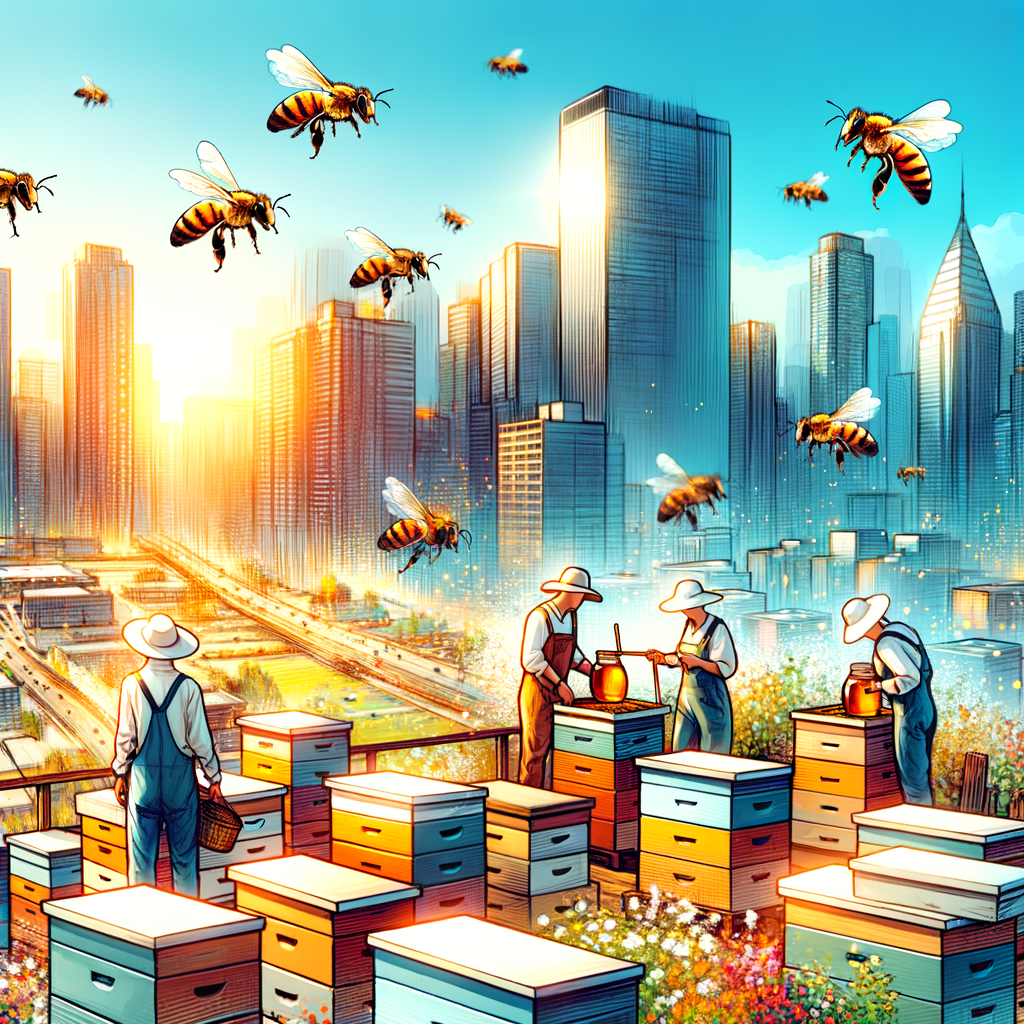As the popularity of beekeeping continues to rise, so does the importance of being aware of the legal and regulatory considerations for this activity. From zoning regulations to health concerns, there are a variety of factors that must be taken into account when determining if beekeeping is permitted in your area.
This blog post will examine these issues, providing essential insight into understanding what it takes to manage a healthy hive and keep everyone safe. Whether you’re new to beekeeping or already have a successful operation, reading this article can help ensure any misunderstandings or challenges that might arise in the future are avoided while also helping further protect your investment and environment.
What is the hazard of beekeeping?
Beekeeping is an interesting hobby that has been around for centuries, but it is important to understand its risks. The biggest hazard of maintaining a bee hive is the stings of the bees themselves. While one or two stings would not cause too much discomfort, a larger number of stings could result in an anaphylactic shock or even death in some cases.
Besides the obvious physical harm from bee stings, other potential dangers of being a beekeeper include exposure to dangerous viruses and pesticides that can come into contact with the hive. Furthermore, it is essential to take proper precautions such as wearing protective clothing when handling the hives since bee populations can be unpredictable and a beekeeper doesn’t want to end up on the wrong side of their fury!
Why we should consider the proper equipment and clothing in apiculture?
Beekeeping is an extremely rewarding experience, but it can be hazardous if we don’t have the right equipment and clothing. In apiculture, adequate protection from bee stings is always essential. It is crucial to always wear beekeeper protective clothing that covers your whole body, even when tending to hives in warm weather.
Additionally, it is of the utmost importance that you purchase a good quality beekeeping suit as well as proper protective gloves. Not only will this keep you safe from potential stings, but it will also enable you to better handle your hive tools and inspect the hive for any potential pests or diseases. If we consider all these factors before getting into apiculture and make sure to equip ourselves with the necessary supplies and clothing, then we can better enjoy our time while staying safe while learning the craft!
What to consider when building an apiary?
When looking to build an apiary, there are a few key considerations to keep in mind. Firstly, location is critical; beekeeping requires spaces with access to plenty of nectar and pollen sources, as well as some protection from strong winds and direct sunlight. Secondly, the number of hives needed will vary depending on the purpose of the apiary. Small hobbyists may only need one or two hives, while larger commercial operations might require dozens or even hundreds.
Thirdly, supplies must also be factored into the budget for essential equipment such as protective suits and gloves, beehives and frames, smokers and blowers for manipulating hives, and other hive management tools. Lastly, if local regulations allow it, beekeepers should consider planting pollinator-friendly vegetation such as wildflowers around their apiaries – doing so can significantly increase success rates by supporting healthier colonies of honeybees.
What are the occupational health and safety risk factors in beekeeping?
Beekeeping is a rewarding and enjoyable activity, but as with any other activity, it also has its share of occupational health and safety risks. The primary risk factors for beekeepers include exposure to venomous stings, contact with potentially dangerous internal parasites found in the hive, electric shock from failing equipment, and working at heights.
Being stung is the most obvious risk associated with beekeeping; however, preventing or minimizing stings requires proactive steps such as wearing protective clothing and keeping an eye out for agitated bees to move them away from work sites safely. Additionally, internal parasites that may be carried by bees can infect people if they are not properly dealt with. Taking basic precautions such as wearing gloves when dealing with issues within the hive can help ensure your safety against this type of health hazard.
Finally, some electrical equipment used in beekeeping can put workers at risk of shock or injury if it is not properly maintained or operated correctly and appropriate safety operation procedures must be followed. Overall, reducing the risks associated with beekeeping takes an understanding of both the environment associated with natural hazards like stings and human-made issues like electrical shocks that can occur.
What are the factors to be considered when choosing a location for bee farming?
When deciding where to begin bee farming, there are several factors to consider. Access to local flower populations is essential as bees require flowering plants as a source of nectar and pollen. Other considerations include the suitability of the soil and climate for hosting bees, access to water sources, and seasonal weather patterns.
Additionally, the presence of other beekeepers nearby can be advantageous as it allows for pollination between hives, experience and advice sharing, and collective purchases at supply retailers. Ultimately, when starting with bee farming it’s important to thoroughly research each specific location to make an informed decision about its suitability for your needs.
Wrapping Up: What Are the Legal and Regulatory Considerations for Beekeeping?
By understanding the legal ramifications of beekeeping, a knowledgeable keeper ensures their hive is in-line with federal regulations, as well as state and local regulations. All beekeepers should become familiar with several aspects of regulations including, but not limited to apiary registration, pesticide usage, and beehive storage periods.
Doing so will help avoid all liabilities associated with hobbies that could potentially arise. Additionally, the knowledge and practical sense gained will open up new avenues such as applying for grants to support research and advocacy that would otherwise have been unavailable.
With dedicated attention towards making sure everything is done right, beekeeping can be a satisfying and rewarding experience both personally and on a larger scale. As a beekeeper, there are limitless possibilities available to pursue – it’s just a matter of hard work and dedication!








